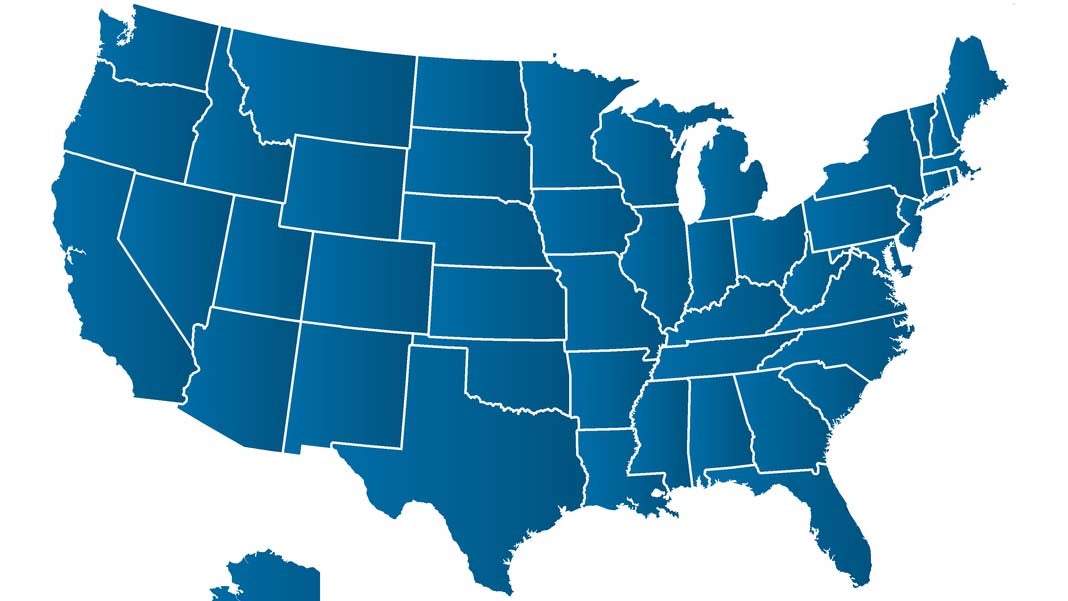3 Important Multi-State Tax Facts Companies Need to Know
By: TaxConnections

What do software companies need to know about when it comes to multi-state tax issues? Last year we shared an overview of nuances many in the field don’t think about, but need to consider when it comes to their organization. As a large portion of the technology industry, it is important that software companies are aware of how matters such as nexus, as well as individual state sales tax and income tax laws, may affect them.
3 Multi-State Tax Facts for Software Companies
Fact 1: Even if you don’t create and sell a physical product, your company may still have “nexus” (or physical presence) in multiple states, making you responsible for following their state’s tax laws (both for income tax and sales tax). We often ask questions like these to determine if a software client may have nexus in multiple states:
- Do your employees travel to other states for anything related to sales, including software installation and training?
- Does your business either have servers or rent server space outside of your home state?
- Does your company have or rent property in multiple states?
Fact 2: How sales tax affects software companies can be confusing; because generally people don’t think of software as a physical product, and the rules can seem confusing. For example, those who create and sell “canned software” often need to collect and remit sales tax, whereas those who create or sell “custom software” are often exempt.
Canned software is something consumers can simply purchase as-is from a chain or independent retailer. Even high-end, expensive software purchased directly from a software company is generally considered canned software. In fact, most software falls into this category, even if the program has been modified a bit, as almost every state has decided to treat software as a tangible item. The exception is if the software was designed specifically for one business (as this Minnesota Fact Sheet explains).
It’s worth noting that separately stated charges for time spent customizing canned software might be non-taxable. It depends on the state as well as the way the service is billed to the business.
Another important question for software companies to ask when it comes to determining if they’re liable for sales tax is: “How is the software delivered?” If it comes in a box, book, disk or with some other kind of physical item, it’s usually taxable. If it’s only downloaded from the internet, there’s a chance it may be exempt (depending on the state—in Tennessee, for example, it’s not exempt).
Remember, when it comes to sales tax, the important thing is that if companies have nexus in a state, they are required to register to collect and remit the tax. But it is a pass-thru tax. So, the liability still falls to the ultimate purchaser, but the software retailer is responsible for its collection.
Fact 3: Software companies are often not impacted greatly by state tax issues during their first couple of years in business. This is because this portion of the business’ life often includes high initial operating costs and also research and development investment, and therefore net operating losses. However, we want to remind companies to make sure your software company is maximizing its use of eligible research and development credits, both at the federal and state level. It is also important to properly apportion the net operating losses to the right states. We can help with that!
Case Study: Miles Consulting’s Work with Software Companies
As we’ve shared above, there can be a lot of complexity regarding multi-state tax issues and software companies because there are so many uncertainties and exceptions! Because of this, it’s important you get sound counsel from an expert. Here’s an example of a client we worked with that encountered a few common issues software companies face.
Our client was based in Silicon Valley and sold software both via electronic download and via a “cloud solution.” The company had 3 or 4 employees living in strategic states across the country (for instance, the Midwest, Southwest, and Northeastern United States), and these employees traveled regularly to states within their territories to generate sales. These employees were creating nexus in many states, such that the company should have considered collecting sales tax on sales of its software into those states. It wasn’t until a proposed merger by a larger suitor that the company realized it had some exposure. The purchaser estimated significant liabilities potentially owed by the client. We came in, performed a nexus and taxability review, and were able to put money back into the pocket of our client because the initial holdback estimate was far too high. We see issues like this every day in our practice!
What else do you need to know regarding multi-state tax issues and the technology industry in general? Stay tuned for our next post in this series, which will share what you need to know about this subject and SaaS companies!
Author: Monika Miles founded Miles Consulting Group in 2002. The firm focuses on multi-state tax consulting—helping their clients navigate state tax issues such as sales tax and income tax in interstate commerce, including e-commerce.












